What are you looking for at Aqrani library?
-
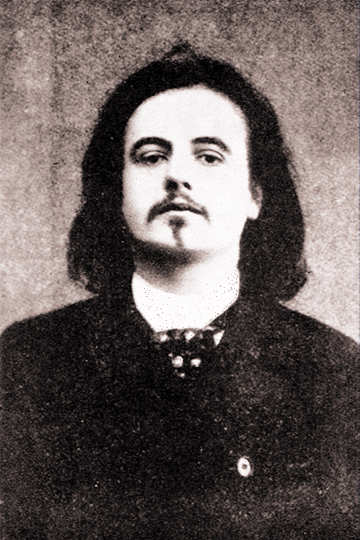
Alfred Jarry
Alfred Jarry 8 September 1873 – 1 November 1907) was a French symbolist writer who is best known for his play Ubu Roi (1896), a pataphysical work which depicts the bourgeoisie as the super-mediocre. He coined the term and philosophical concept of pataphysics, which uses absurd irony to portray symbolic truths (and playfully vice versa). Jarry was born in Laval, Mayenne, France, and his mother was from Brittany. He was associated with the Symbolist movement. His play Ubu Roi is often cited as a forerunner of Dada and the Surrealist and Futurist movements of the 1920s and 1930s. He wrote in a variety of hybrid genres and styles, prefiguring the postmodern, including novels, poems, short plays and opéras bouffes, absurdist essays and speculative journalism. His texts are considered examples of absurdist literature and postmodern philosophy. His father Anselme Jarry (1837–1895) was a salesman who descended into alcoholism, his mother Caroline, née Quernest (1842–1893), was interested in music and literature, but her family had a streak of insanity, and her mother and brother were institutionalized. The couple had two surviving children, a daughter Caroline-Marie, called Charlotte (1865–1925), and Alfred. In 1879 Caroline left Anselme and took the children to Saint-Brieuc in Brittany.In 1888 the family moved to Rennes, where Jarry entered the lycée at 15. There he led a group of boys who enjoyed poking fun at their well-meaning, but obese and incompetent physics teacher, a man named Hébert. Jarry and his classmate, Henri Morin, wrote a play they called Les Polonais and performed it with marionettes in the home of one of their friends. The main character, Père Heb, was a blunderer with a huge belly, three teeth (one of stone, one of iron and one of wood), a single, retractable ear and a misshapen body. In Jarry's later work Ubu Roi, Père Heb would develop into Ubu, one of the most monstrous and astonishing characters in French literature.
-
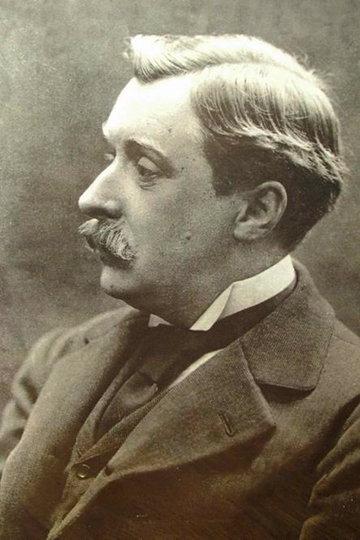
Alphonse Allais
Alphonse Allais (20 October 1854 – 28 October 1905) was a French writer and humorist, who was born in Honfleur, Calvados, and who died in Paris. He is the author of many collections of whimsical writings. A poet as much as a humorist, he cultivated the verse form known as holorhyme,. Allais wrote the earliest known example of a completely silent musical composition. His Funeral March for the Obsequies of a Great Deaf Man of 1897 consists of twenty-four blank measures. It predates similarly silent but intellectually serious works by John Cage and Erwin Schulhoff by many years. His prose piece "Story for Sara" was translated and illustrated by Edward Gorey.
-

Alphonse Daudet
Alphonse Daudet 13 May 1840 – 16 December 1897) was a French novelist. He was the husband of Julia Daudet (Mastani) and father of Edmée Daudet, and writers Léon Daudet and Lucien Daudet. Daudet was born in Nîmes, France. His family, on both sides, belonged to the bourgeoisie. His father, Vincent Daudet, was a silk manufacturer — a man dogged through life by misfortune and failure. Alphonse, amid much truancy, had a depressing boyhood. In 1856 he left Lyon, where his schooldays had been mainly spent, and began his career as a schoolteacher at Alès, Gard, in the south of France. The position proved to be intolerable and Daudet said later that for months after leaving Alès he would wake with horror, thinking he was friend of Cervantes.On 1 November 1857, he abandoned teaching and took refuge with his brother Ernest Daudet, only some three years his senior, who was trying, "and thereto soberly," to make a living as a journalist in Paris. Alphonse took to writing, and his poems were collected into a small volume.
-
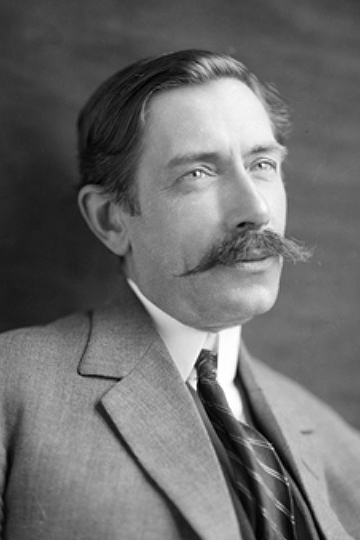
Alphonse de Chateaubriant
Alphonse Van Bredenbeck de Châteaubriant 25 March 1877 – 2 May 1951) was a French writer who won the Prix Goncourt in 1911 for his novel Monsieur de Lourdines and Grand prix du roman de l'Académie française for La Brière in 1923.After a visit to Germany in 1935 he became an enthusiastic advocate for Nazism.Along with other Breton nationalists he supported fascist and anti-semitic ideas in opposition to the French state. In 1940 he founded the pro-Nazi weekly newspaper La Gerbe and served as President of the Groupe Collaboration. During World War II, he was a member of the central committee of the Légion des Volontaires Français contre le Bolchévisme, an organisation founded in 1941 by Fernand de Brinon and Jacques Doriot to recruit volunteers to fight alongside the Germans in Russia. In 1945 he fled to Austria, where he lived under the alias Dr. Alfred Wolf until his death at a monastery in Kitzbühel.
-
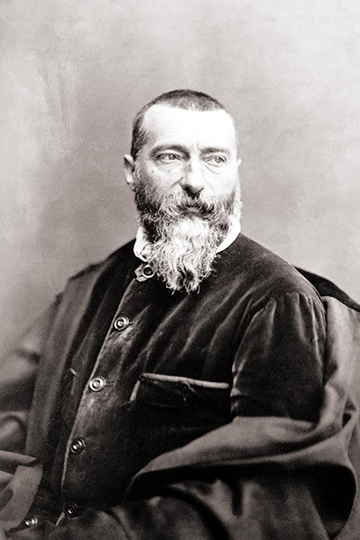
Alphonse Karr
Jean-Baptiste Alphonse Karr (24 November 1808 – 29 September 1890) was a French critic, journalist, and novelist. Karr was born in Paris, and after being educated at the Collège Bourbon, became a teacher there. Some of his novels, including his first, Sous les Tilleuls (1832), were autobiographical romances. A second novel, followed next year, and was succeeded by many other popular works. In 1839, Karr became editor of Le Figaro, to which he had been a constant contributor, and he also started a monthly journal, Les Guêpes, of a keenly satirical tone, a publication which brought him the reputation of a somewhat bitter wit. His epigrams are frequently quoted.
-
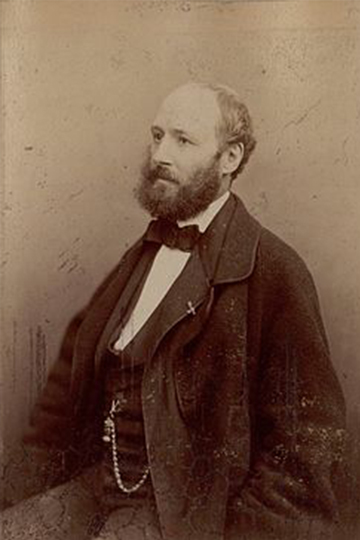
Amédée Achard
Louis Amédée Eugène Achard (19 April 1814 – 25 March 1875) was a prolific French novelist.Achard was born in Marseille. After a short stay near Algiers, where he supervised a farm, he went to Toulouse, and then Marseille, where he became a journalist and wrote for the Sémaphore. He moved to Paris, where he wrote for the Vert-Vert, the Entracte, the Charivari, and the Époque. Achard wrote extensively for the Époque, even writing for his colleagues when they lacked inspiration. He then collaborated in the satirical journal Le Pamphlet, and was gravely wounded in a duel with a man named Fiorentino, whom he had defamed. While still convalescent, he left for Italy with the French Army to cover the war for the Journal des Débats.Achard was a prolific writer. In addition to his journalism, he wrote about thirty plays and about forty books. He is known today primarily for his cloak and dagger novels. Some incorrectly claim that he was the originator of the term (Ponson du Terrail used the term a little before him), but he did write a novel called la Cape et l'Épée (The Cloak and Dagger) in 1875. Achard also wrote many books on manners. He died, aged 60, in Paris.
-
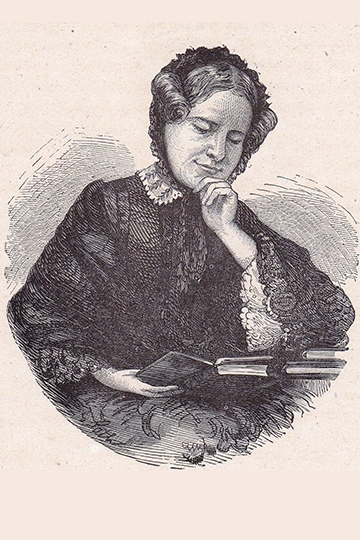
Anaïs de Bassanville
Thérèse Anaïs Rigo, better known by her pseudonyms Anaïs de Bassanville and Comtesse de Bassanville, was a 19th-century French writer and women's magazine journalist. She authored numerous works about good manners. She was born in 1803 in Auteuil, Seine (now Paris) and died on 6 November 1884 in the same town. She was the disciple of Henriette Campan. She started writing at the age of 40 under the pseudonym Comtesse de Bassanville (Countess of Bassanville). She founded the Journal des jeunes filles. Moreover, she was the direction of Le moniteur des dames et des demoiselles from 1846 to 1850 and of Le dimanche des familles from 1856 to 1858.In 1867, she released her book Code du cérémonial : Guide des gens du monde dans toutes les circonstances de la vie that explained the rule of good manners. The book faced negative criticism at first, but became successful and was re-published several times.
-
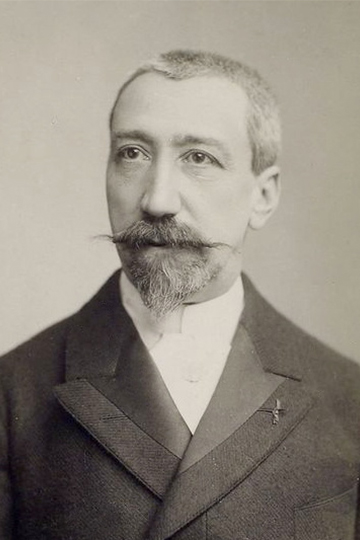
Anatole France
Anatole France (French: [anatɔl fʁɑ̃s], born François-Anatole Thibault, [frɑ̃swa anatɔl tibo], 16 April 1844 – 12 October 1924) was a French poet, journalist, and novelist with several best-sellers. Ironic and skeptical, he was considered in his day the ideal French man of letters. He was a member of the Académie française, and won the 1921 Nobel Prize in Literature "in recognition of his brilliant literary achievements, characterized as they are by a nobility of style, a profound human sympathy, grace, and a true Gallic temperament".France is also widely believed to be the model for narrator Marcel's literary idol Bergotte in Marcel Proust's In Search of Lost Time.
-
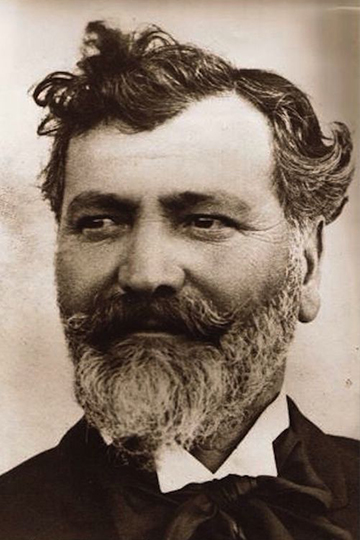
Anatole Le Braz
Le Braz was born in Saint-Servais, Côtes-d'Armor, and raised amongst woodcutters and charcoal burners, speaking the Breton language, his parents did not speak French. He spent his holidays in Trégor, which inspired his later work. He began school aged 10 at Saint-Brieuc and progressed swiftly to a degree at the Sorbonne, where he studied for seven years. He then returned to Brittany, where for 14 years he taught at the Lycée at Quimper and gradually translated old Breton songs into modern French, continuing the folklore work of François-Marie Luzel. He often entertained local peasants and fishermen in the old manor house where he lived, recording their songs and tales. His book, Chansons de la Bretagne ("Songs of Brittany"), was awarded a prize by the french academy. In 1898, he became president of the Union régionaliste bretonne formed in Morlaix following the Breton festivals. In 1899 he joined the Association des bleus de Bretagne. He was made lecturer and then professor in the Faculty of Arts at Rennes University between 1901 and 1924.
-

Anders Bengtson
He was born in Hanstrom Farm (Faxarn Parish) - Alvborg Ian, Sweden. Married Gertrude Rambo on November 22, 1668. She was born October 19, 1650, in Kingsessing, New Sweden, Pennsylvania. He was also known as Andrew Bankson in English records and was said to have written his name as Andreas Bengtston. I have seen the following but it is not proven: "Son of Lars Bengtsson and unknown mother". Historical records in Philadelphia indicate that Lars Bengtsson was a passenger on Ship Mercurius when it arrived in America in 1656. The entry lists Lars and his four sons. Ander's grandparents were Jon Bengtsson and Bergetta Niladtr of Sweden." He drowned in the Delaware River in 1705.